PROTAC Technology: A Revolutionary Breakthrough from "Undruggable" to "Druggable"
One of the most remarkable advantages of Proteolysis Targeting Chimera (PROTAC) technology is its ability to transform traditionally "undruggable" targets into "druggable" ones. Conventional small-molecule drugs or monoclonal antibodies typically rely on enzymatic active sites, yet over 80% of human proteins lack such sites—they may have no enzymatic activity or lack surface binding pockets, rendering them resistant to traditional therapies. PROTAC overcomes this limitation by precisely capturing these "undruggable" proteins and degrading them via the ubiquitin-proteasome pathway. With rapid advancements in targeted protein degradation strategies, PROTAC has emerged as one of the most promising breakthrough technologies in drug discovery.
How PROTAC Works: Precision Degradation of Target Proteins
PROTAC (PROteolysis TArgeting Chimera) is an innovative bifunctional small molecule. Its ingenious design includes:
- A target protein-binding ligand at one end,
- An E3 ubiquitin ligase-binding ligand at the other,
- Connected by a flexible linker.
Inside cells, the PROTAC molecule brings the target protein and E3 ligase into proximity, inducing ubiquitination and subsequent proteasomal degradation of the target. This unique mechanism enables PROTAC to tackle traditionally challenging proteins, opening new frontiers in drug development.
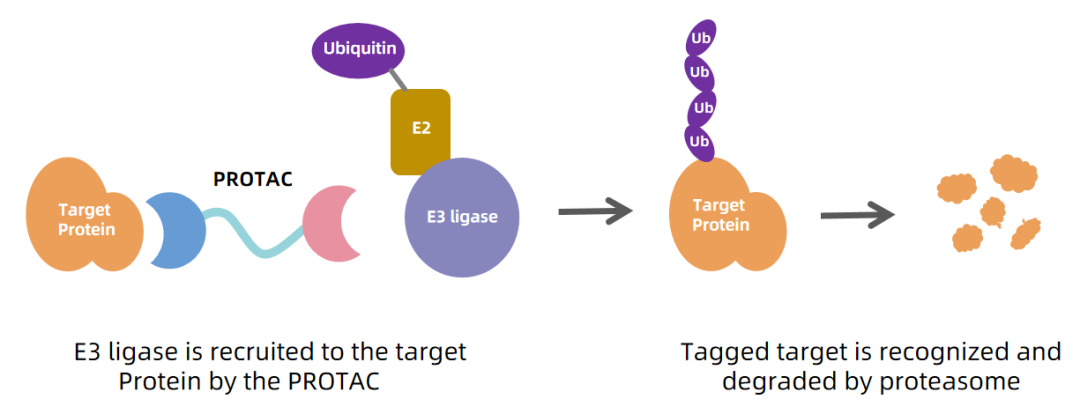
I. Cereblon (CRBN)
CRBN is a widely used E3 ligase in PROTACs, serving as a critical bridge to facilitate target ubiquitination and degradation. To accelerate PROTAC research, the KeyTec® TR-FRET Human Cereblon Binding Kit was developed. This kit enables high-efficiency, precise screening of CRBN-binding compounds/ligands and provides inhibition constant (Ki) values, offering a powerful tool for PROTAC design and optimization.
II. VHL (Von Hippel-Lindau)
VHL is a key component of the E3 ligase complex, forming the VCB complex (with Elongin B/C) to regulate ubiquitination of targets like hypoxia-inducible factor (HIF). In PROTACs, VHL is often used to recruit target proteins for degradation. The KeyTec® TR-FRET Human VHL Binding Kit accurately measures ligand/inhibitor binding affinity, quantifies compound inhibition (IC50, Ki), and supports VHL-targeted drug screening, PROTAC optimization, and mechanistic studies.

*CRBN Screening Assay (Competitive Binding for Novel Ligands)

KeyTec® TR-FRET Human Cereblon Binding Assay Principle
*CRBN Assay Workflow
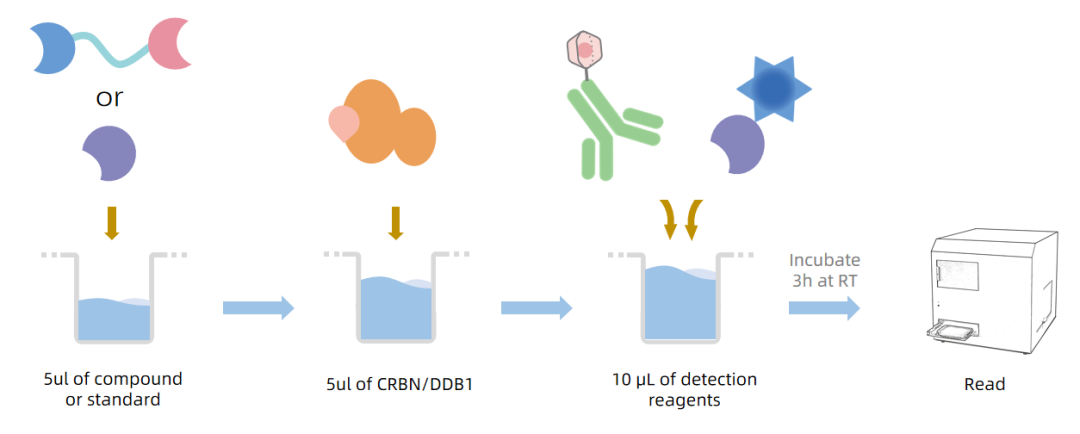
* Validation Data:
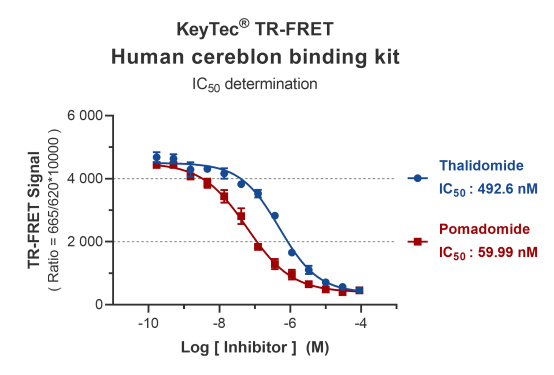
* CRBN Binding kit Performance:
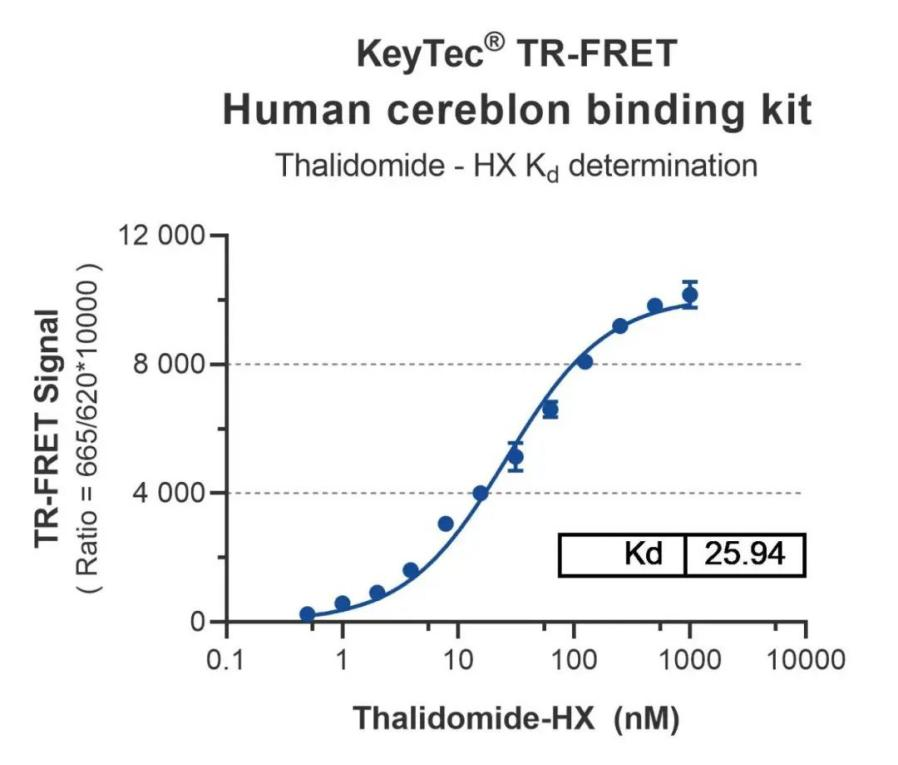
* VHL Screening Assay (Competitive Binding for Novel Ligands)

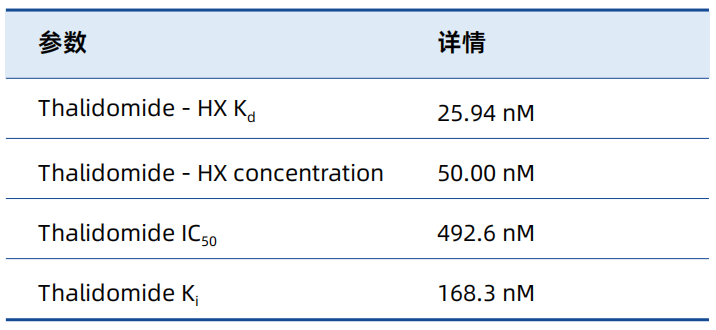
*VHL Binding kit Performance:

Schematic: KeyTec® TR-FRET Human VHL Binding Assay
*VHL Binding kit Performance:
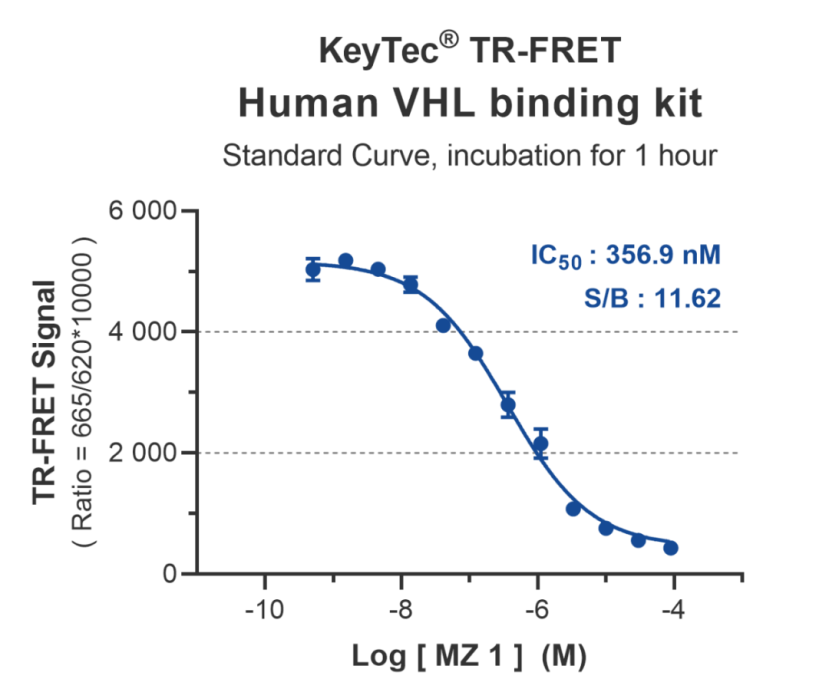
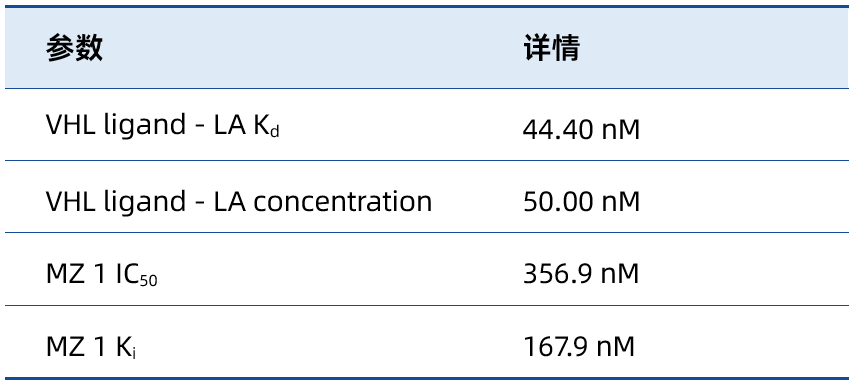
✔ High Sensitivity & Specificity: TR-FRET technology detects nM-level binding with minimal background.
✔ High-Throughput Screening: Compatible with 96/384-well plates for large-scale compound testing.
✔ User-Friendly: Pre-mixed reagents and optimized protocols reduce experimental variability.
✔ Excellent Reproducibility: Rigorous QC ensures consistent results.
✔ Broad Applicability: Ideal for CRBN/VHL inhibitor screening, ligand affinity assays, and PROTAC development.